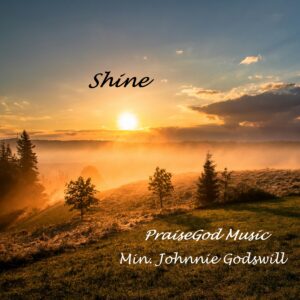

The Herald
Kundai Marunya
Disco speakers break into music, and the competition starts. The dancers are out to not only to dazzle with fancy footwork and body movement — the fad of dancing competitions — but to outdo each other. A figure latches onto stage on spindly legs and break-dancing gaiety, sending the crown into a frenzy. It is obvious the lad means business.
His amazing energy is felt by the crowd, his creativity evident in every step and movement he makes.
The crowd cheers him on, and as if hearing their shouts and loud applause, he executes a perfect ending to his set.
One would hardly notice he is deaf, until he introduces his interpreter to help him communicate with the panel of judges.
This was 25-year-old (then 24) Tinashe Dokwara’s display at last year’s Dreamstar finals.
Unfortunately, despite his great displays, they were better dancers who eliminated him.
Not winning the competition did not pull down Dokwara.
Not once does he mention that his disability puts him at a disadvantage when he competes.
He believes he has what it takes to be one of the greatest dancers to come out of Zimbabwe.
Many people hear the beat but still fail to conjure the required rhythm to produce a befitting dance.
Some are stiff-muscled and fail to master decent steps even after massive training.
This is why it is a marvel to watch Dokwara competing with contestants who do not have hearing impairments.
One may wonder how he always follows the rhythm and tempo of music when he cannot hear.
“It is actually easier than people think because big speakers produce vibrations which I can easily pick.
“Even with live instrumentation like drums, when they are loud enough they produce the same vibration,” he said.
“The only problem is when the sound is very low, say when there are only small speakers.”
Dokwara defies many stereotypical limitations. He stands to prove the old adage which suggests that with passion anything is possible.
Dokwara started dancing at the age of 13 when he was a student at St Giles School and he has not stopped since then.
“I was one of the best dancers at school which drove me to join Cole Nation, a 20-member ensemble led by John Cole,” he said.
Dokwara has worked with John Cole for the past 16 years featuring in various projects including music videos.
“Working with John Cole allowed me the opportunity to grow as a dancer.
“I managed to feature in different music videos by famous musicians such as Lee McHoney,” he said.
When dancing with the ensemble, Dokwara is always well in-sync with others.
In a nation when only a few people have mastered sign language, working with a group would have proved to be hard for a deaf dancer.
“All dancers feel the music; you really do not need to hear to match the beat,” he said.
However, when communication is needed, Dokwara is lucky to have Cole for a mentor, someone who is among the few who have mastered sign language.
“Whenever there is need, John Cole interprets, when he is not available I employ the services of an interpreter,” he said.
Though Dokwara seems to be on track to greatness, his road has been met with various obstacles with the main one being stigma.
He is often ridiculed and looked down upon because of his disability.
“It’s been a long and tough road and sometimes I worry about my future prospects.
“At some point I was told by some girls that I will never make it in life; that I would remain poor; that my dancing will never amount to anything.
“Some people laugh and look down upon me, sharing their sentiments which are sometimes abusive,” laments Dokwara.
“I am passionate about dancing so I will still pursue my art no matter how much of these sentiments are thrown at me. I will one day prove them wrong.”
Instead of putting him down, the sentiments have awakened a strong zeal to succeed and also open doors in the creative world for more deaf people.
“I’m planning to start a project to teach dancing in the local community.
“My wish is to spread dance in the deaf community in all the corners of the country.
“The only problem I’m facing is that of financial support,” he said.
“As it is I can’t even support myself. I call upon individuals, corporates, non-governmental organisations and even the Government to donate whatever they can so that many deaf people can have the beautiful opportunity to dance, something our hearing counterparts easily enjoy.”
Dokwara said many deaf people go about their lives without getting the necessary support to reach their full potential.
“I am blessed to have a loving mother who has been supporting me all my life, paying for my education and different interpreters so that I can also access some necessities my hearing counterparts are privy to.
“Through her support I managed to get a driver’s license which I consider a great achievement,” he said.
Dokwara pointed out the exclusion of deaf people in local arts especially when holding different events.
“We are often excluded from different events. Even festival organisers do not consider having us on board when they host their activities,” he said.
“We are also human. We also want to be invited to perform and be part of the major events.”
Though the discrimination is evident in his interactions, Dokwara has not stopped from seeking opportunities to grow his talent. Next month the dancer is scheduled to perform in South Africa.
“I was invited by an organisation called Socigo to perform at the Izingane and Hands Festival to be held in Capetown towards the end of November,” he said.
Dokwara’s attendance at the festival that will feature dance performers from across the globe however hangs in the balance as he is still to raise the US$2 500 he requires for his airfare, food and accommodation.





